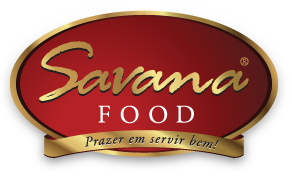Food safety refers to the quality involving all the production chain – from the processes used to obtain the raw material, industrialization, staff training, storage, transportation, to the delivery of products to the customer, thus assuring a product which will not represent any health risks.
Savana Food has its own quality protocol that provides support to the concept of FOOD SAFETY. This protocol has the task of defining which conditions the suppliers of raw materials, products or services must follow to become Savana Food suppliers. Food Safety is based on:
Certificate of Origin
The Certificate of Origin confirms the quality of the producer. A complete survey of the property in which the animals or vegetables are produced is conducted and some aspects are checked, like:
Environmental Management of the Property
- efficient usage of the environmental resources.
- minimising the impacts.
- effluent controlling.
- periodical analysis of the water provided to the animals.
- strict control and appropriate usage of fertilizers and agricultural pesticides, as well as disposal of their packages.
- updated map of the property, according to current legislation, showing the legal reserve areas, pasture and watering places.
Human Resources Management
- no child or slave labor.
- occupational management, aiming to reduce and control the dangers and risks which the rural workers are subject to.
- providing training to employees.
- all employees must be registered according to current legislation.
- the housing conditions offered to the employees must be appropriate.
- the farm must supply meals in appropriate conditions to employees who do not live there or are single.
Operational Management of the Property
- the facilities must be easy to maintain and safe, in order to avoid animal stress.
- the shipper must have flat platform at the end.
- the period of removal of medicines prior to slaughter must be respected.
- records of sanitary control and vaccination must exist, as well as of weight gain.
- electrical shock cannot be used in the handling of the animals.
- no kind of input prohibited by legislation must be used in the productive handling of vegetables and animals, as well as products not of plant origin to feed the animals.
Social Responsibility
To encourage the creation of community programs that implement and disseminate the concept of social responsibility, therefore providing more quality in the life of the property inhabitants, the community or the area.
Tracking
Traking is the process in which every product is identified through a code, like an identification document, from which their source can be known. Through this code we can, for example, identify the farmer, age of the animal, sex, date of slaughter, disposal of carcass, among other factors.
Good Manufacturing Practices
The Good Manufacturing Practices are implemented and verified in all our service providers, such as: slaughterhouses, carriers, processors, warehouses and in our own factory.


